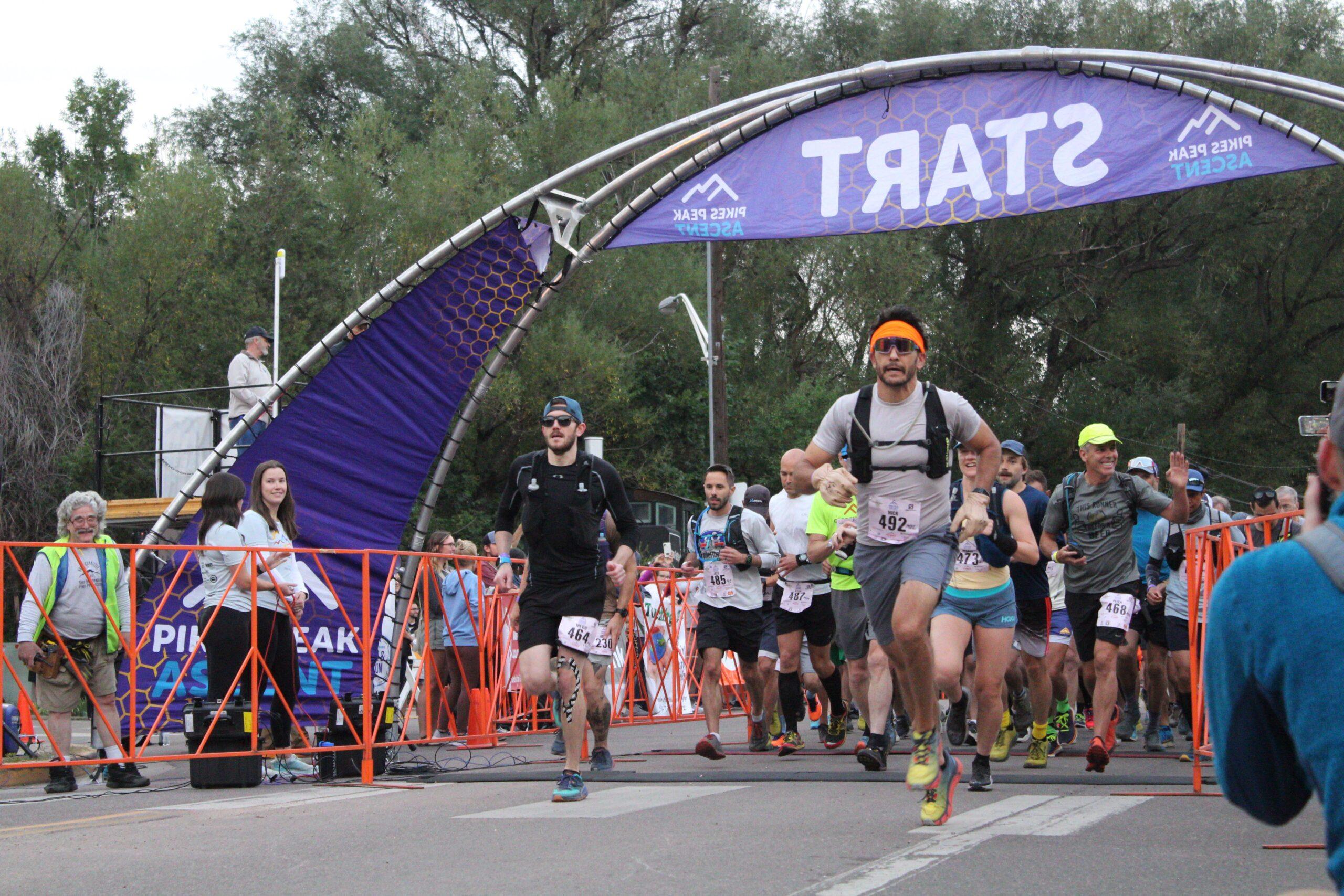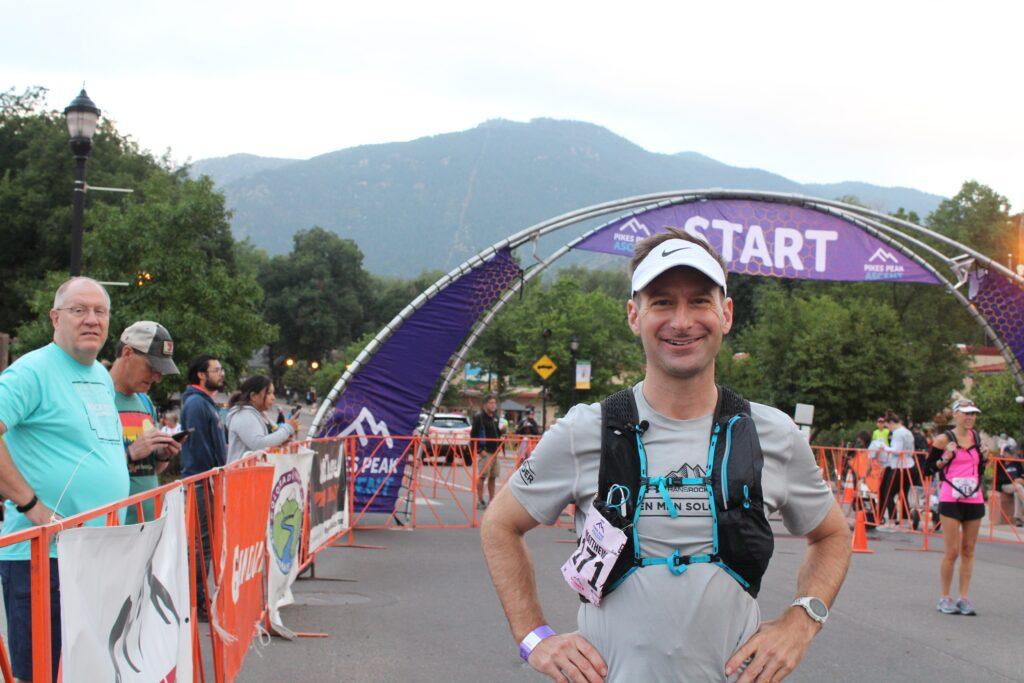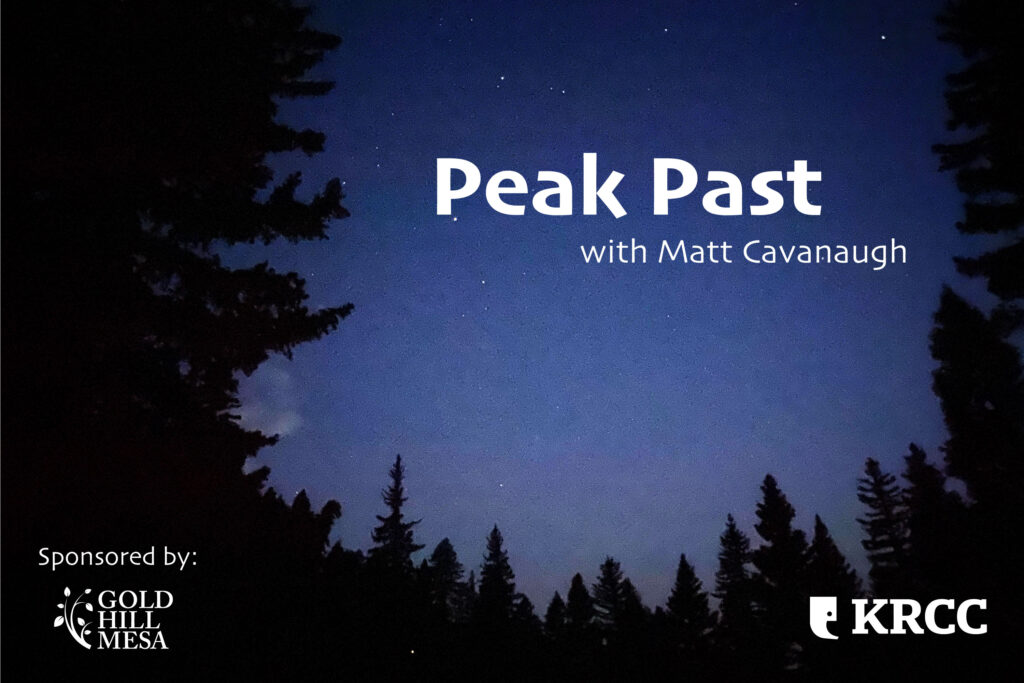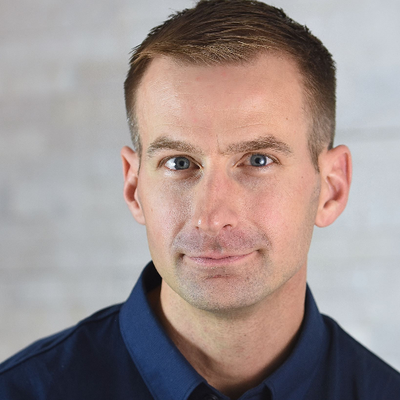
The following is part of KRCC's 'Peak Past' essay series.
When I lined up this past Saturday for the Pikes Peak Ascent, I knew the basics. The only way to go is up—the race climbs about 7,800 feet in 13.3 miles.
As of the beginning of July, officials had close to 1,800 people signed up for the Ascent. That included over a thousand Coloradans, nearly a-hundred Texans, three dozen Californians, two dozen Minnesotans, as well as and Austrians, Canadians, a Brit, a Spaniard, and an Israeli.
This is typical.
People have always flocked to America’s Mountain on race day.

The Marathon, run the day after the Ascent, has about half as many runners but is just as diverse.
Several groups are known to show up every year to compete. The Arkansas Pikes Peak Marathon Society has brought hundreds of runners over the past 40 years. Peak Busters, a women’s run group has been helping women bag the peak since 1976. And then there’s the Incline Club, which meets twice a week at the base of the mountain. Their motto: “Go out hard, when it hurts speed up.”
All these people are brought together by the non-profit that runs the Pikes Peak Marathon and Ascent, led by Ron Ilgen. This is his 19th and final year serving as the race’s director.
On race weekend, organizers expect close to 650 volunteers to make it all happen. Those volunteers work hard: they haul hoses for water and hike uphill with aid station gear, many of them assembling at ‘zero dark thirty’ to make sure the race is ready when the gun goes off.
Until our next mountainside chat, be good, be well, and no matter what, climb on.

Peak Past (formerly Peak Perspectives) is a weekly segment written and voiced by Matt Cavanaugh, a lieutenant colonel in the U.S. Army and a resident of Manitou Springs where he lives with his wife and two young children. Through his writing, Cavanuagh explores life in the Pikes Peak region, including the gradients and subtleties of our lives in the shadow of America's Mountain.
You can find more work by Cavanaugh here.
KRCC's Abigail Beckman manages the "Peak Past" series. The opinions expressed in this publication are those of the authors. They do not purport to reflect the opinions or views of KRCC or Colorado Public Radio.
Peak Past is sponsored by Gold Hill Mesa.








